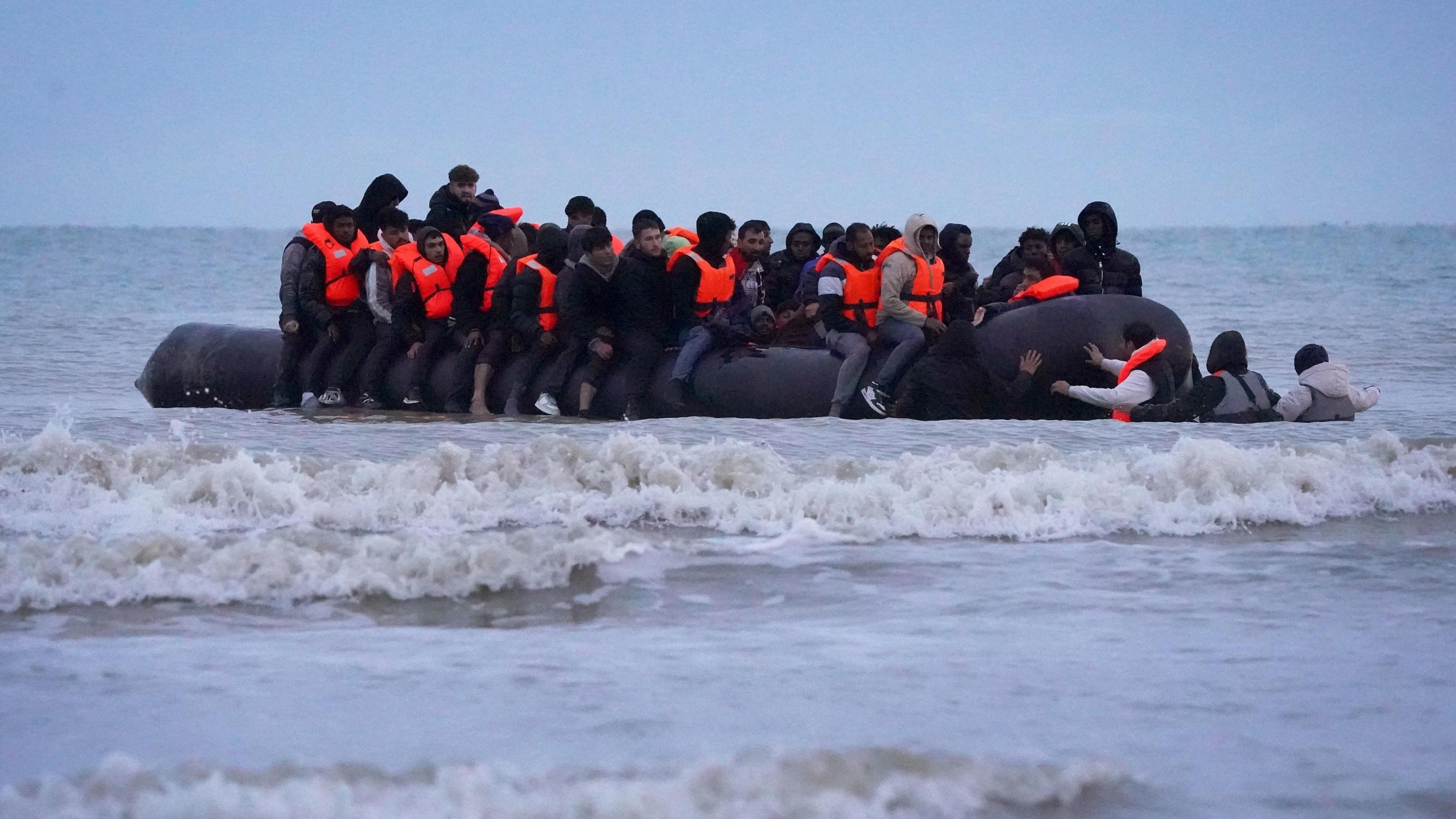Asylum seekers plan: Residents look to boost home security
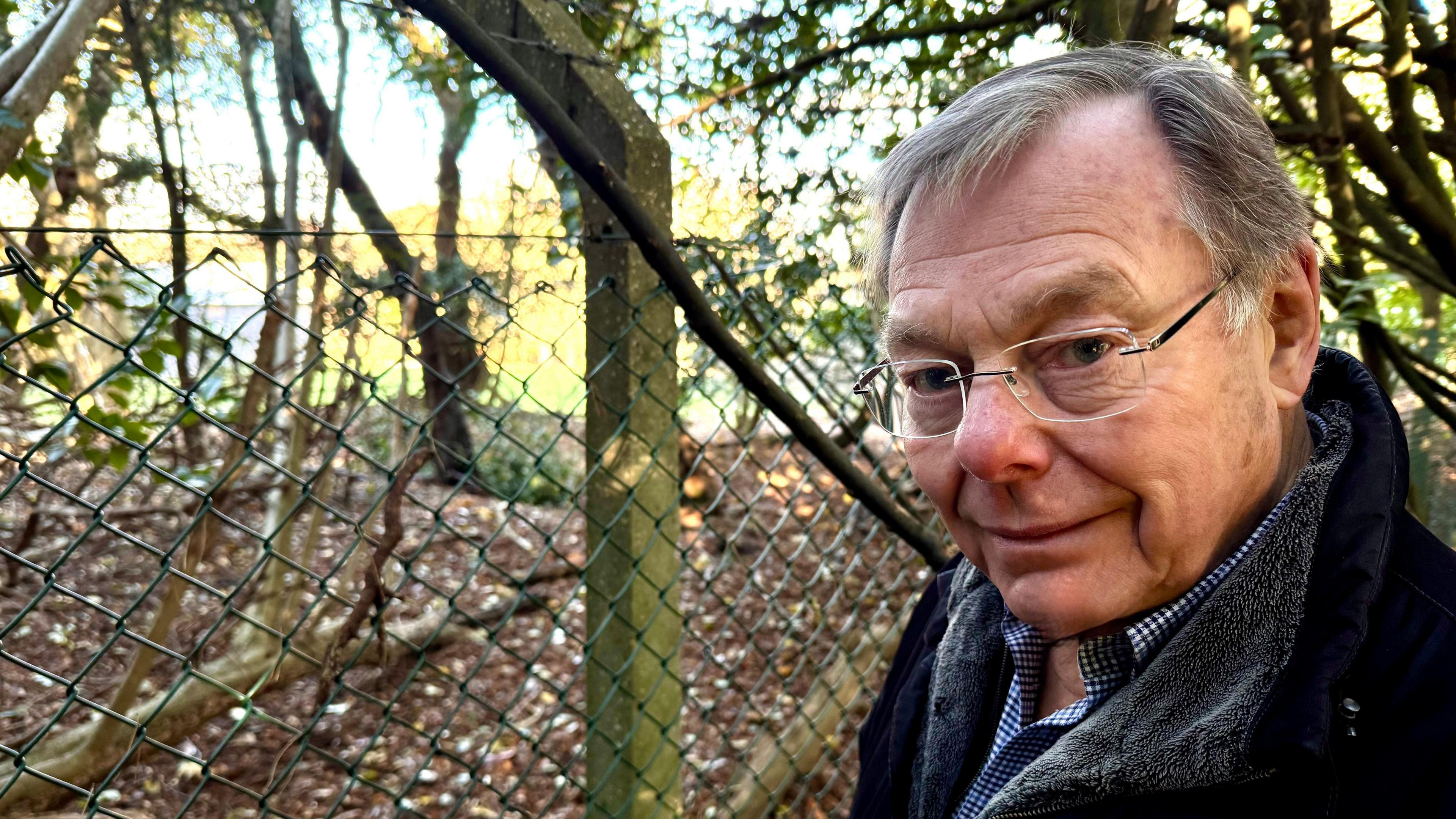
Crowborough Training Camp's perimeter fence separates the site from Colin Westcott's back garden
- Published
On a bright November morning in Crowborough, Colin Westcott shows me the 230ft (70m) long barbed wire fence hidden in his back garden, separating his land from a former military site earmarked for up to 600 asylum seekers.
He says he feels "frightened" about the Home Office plans for the site and that he would no longer allow his grandchildren to play in his garden on their own.
The plans for the army camp have sparked protests and opposition from Wealden District Council (WDC), which has backed a motion to formally oppose the scheme.
The Home Office said it was furious at the level of illegal migrants and asylum hotels in the country, and the government will close every asylum hotel.
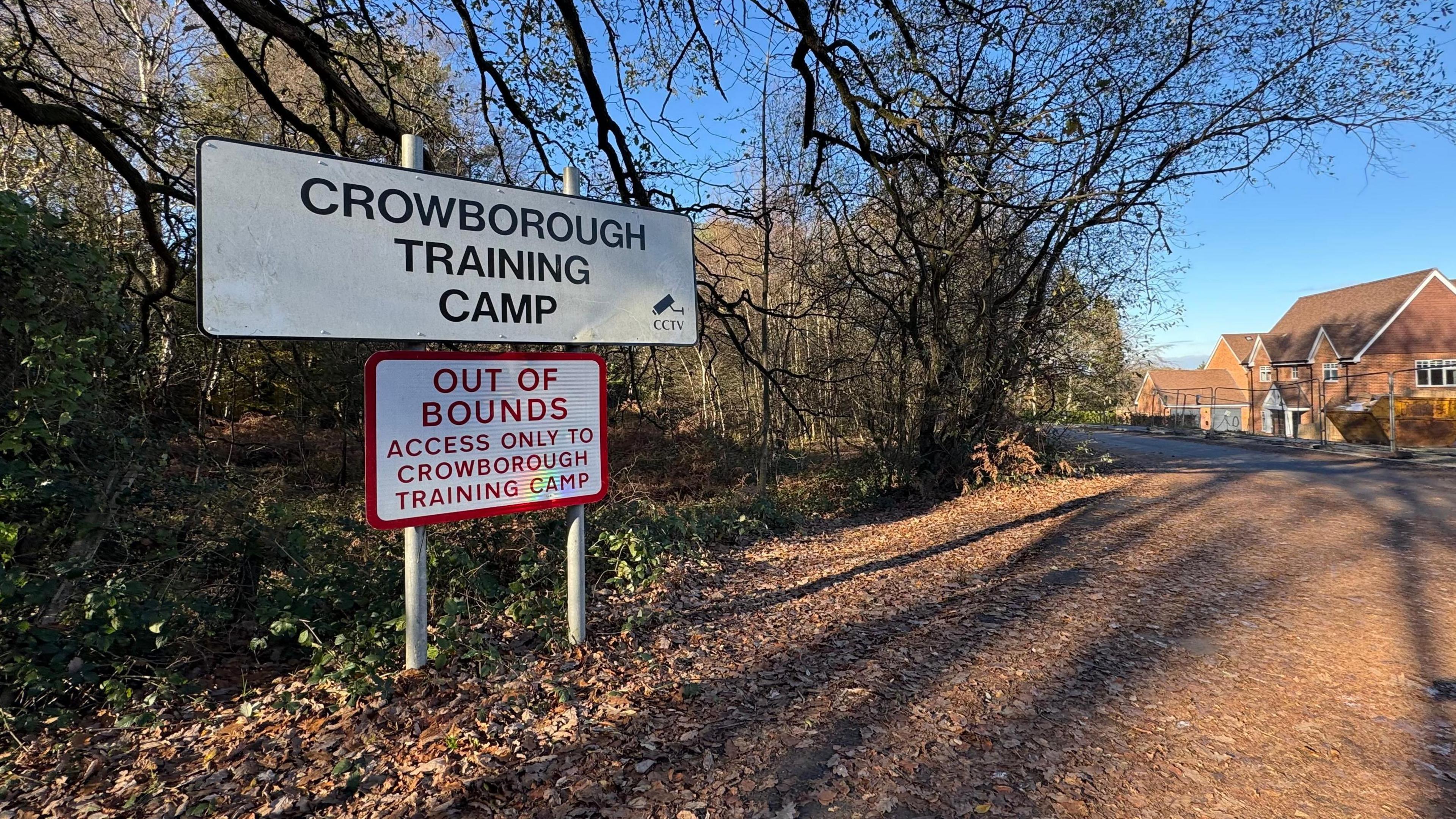
Home Office figures show there are plans to house 540 male asylum seekers at the Crowborough site
At a public meeting last Thursday in Crowborough, Andrew Larter, director of asylum accommodation at the Home Office, gave an "absolute assurance" that the planning was based on using the camp for only 12 months, but a "guarantee" would be a ministerial decision.
Mr Westcott, 76, said he had CCTV already but would also be looking at additional fence security, which could detect vibrations.
Colin's next door neighbour, Phil, claimed the prospect of hundreds of single men living nearby had brought down the value of his home "massively".
He said: "Nobody is going to want to move into this situation and if they did they would expect a massive reduction in price."
Most asylum seekers were "decent", he said, and wanted to improve their lives, but he claimed that in any group of people there would be those who would "take advantage" of the situation.
One local estate agent said buyers and vendors were now having second thoughts, while another said it was too early to say if property prices would be affected.
'Government needs to listen'
Two local barbers Gasim Sipan and Arya Hamid said they have witnessed Syrian refugees arriving in Kurdistan in the north of Iraq, where they are from.
They said they were not bothered by the idea of male asylum seekers in the area.
Mr Sipan, who arrived in Crowborough 10 years ago, said: "The immigrants usually don't want to be committing any crime because they don't want to get deported. They usually avoid trouble more than English people do.
"At the end of the day, you need to listen to your people, as a government, what their concern is," he added.
Mr Sipan suggested a curfew could be imposed on the asylum seekers, limiting their access outside the camp, or the men could be housed in a city.
"[Crowborough] is such a small place. If a new face comes here they already notice it," he added.

The Home Office scheme has sparked protests in the town
One resident with a young daughter, who asked not to be named, bought her house last year.
She questioned whether the money spent upgrading the army camp, such as £1.5m improving the electricity supply, was for one year's use.
The Home Office has been approached for comment on that point.
When the plans to house asylum seekers at the army camp were announced in October, the mum said she "didn't know whether to laugh or cry".
"It's the unknown," she said. "They could be good people, they could be bad people. I have no idea."
According to the latest Home Office figures, the site can house up to 540 people, external.
Ally Nowell, 26, works at the Brew Box coffee and snack van, and is worried about local services.
"As a resident here it feels like we don't have enough things that help support our community as it is, never mind another 600 people," she said.
"Trying to get a GP appointment is such a struggle, and I've heard that there are actually people going there to help with medical to take the burden off but then we're also going to be paying for that."
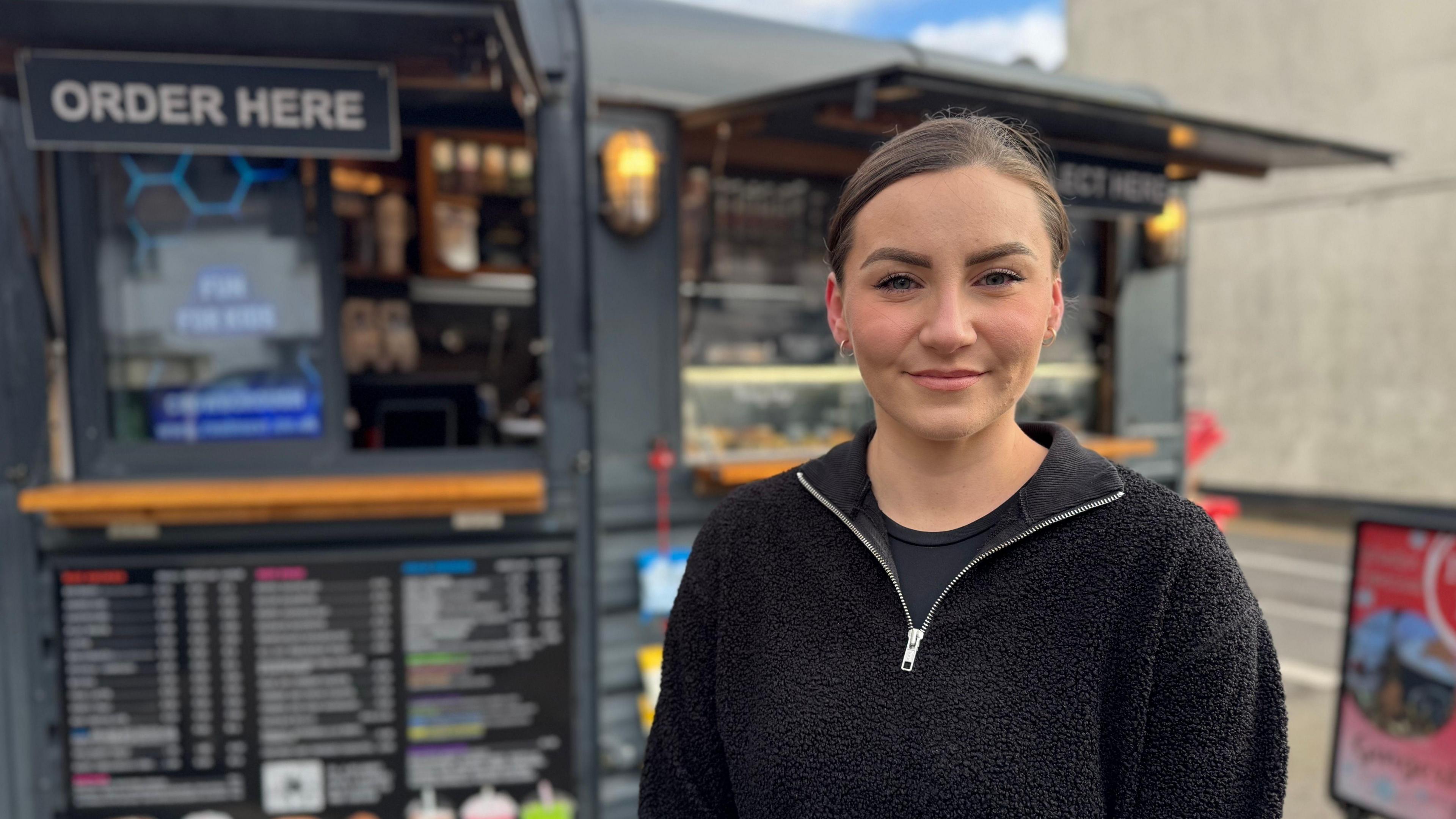
Ally Nowell is worried about the extra pressure asylum seekers will put on local services
Ally's colleague Vicky Locks, 35, said "it's not a racist thing" to be concerned about hundreds of single men "who've been given everything" arriving in the town.
"They didn't even consult the local council about it," she said. "They knew it was wrong, and that's why they did it so secretly, and I think that's why people are more annoyed as well."
Others are concerned about a lack of a police presence.
Sussex Police chief constable Jo Shiner said neighbourhood officers were providing "wider community reassurance".
The Home Office previously apologised for its handling of the plans, having been criticised by WDC for creating an "information vacuum".
A Home Office spokesperson said: "This government inherited an asylum system in chaos, with tens of thousands of individuals in hotels waiting for their claims to be heard.
"We have committed to close every asylum hotel and as part of this we are working to move asylum seekers into more suitable accommodation such as military bases.
"We are continuing to engage with local authorities and stakeholders to address the concerns of those most impacted by the sites."
- Published6 days ago

- Published1 day ago
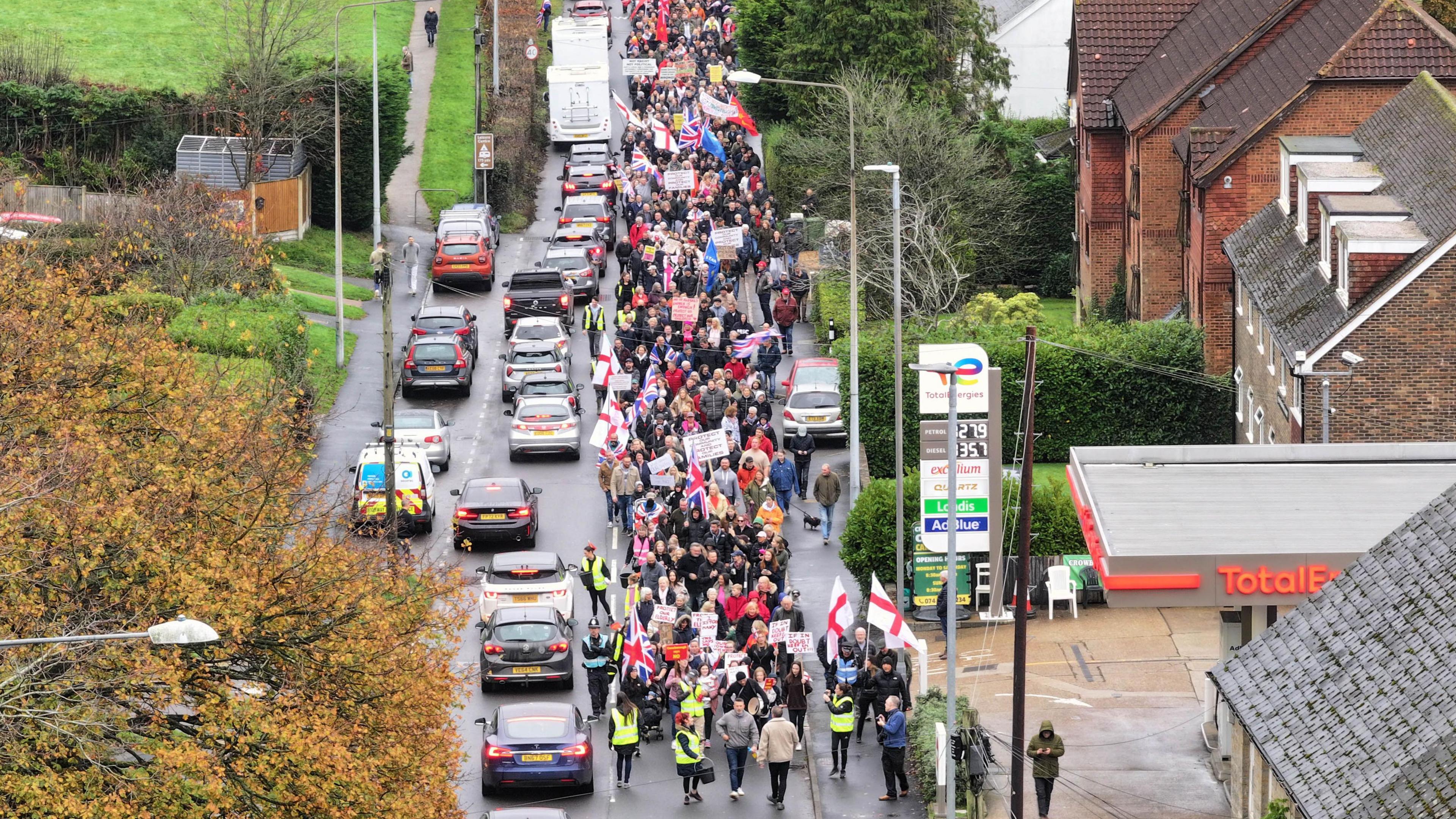
- Published28 October
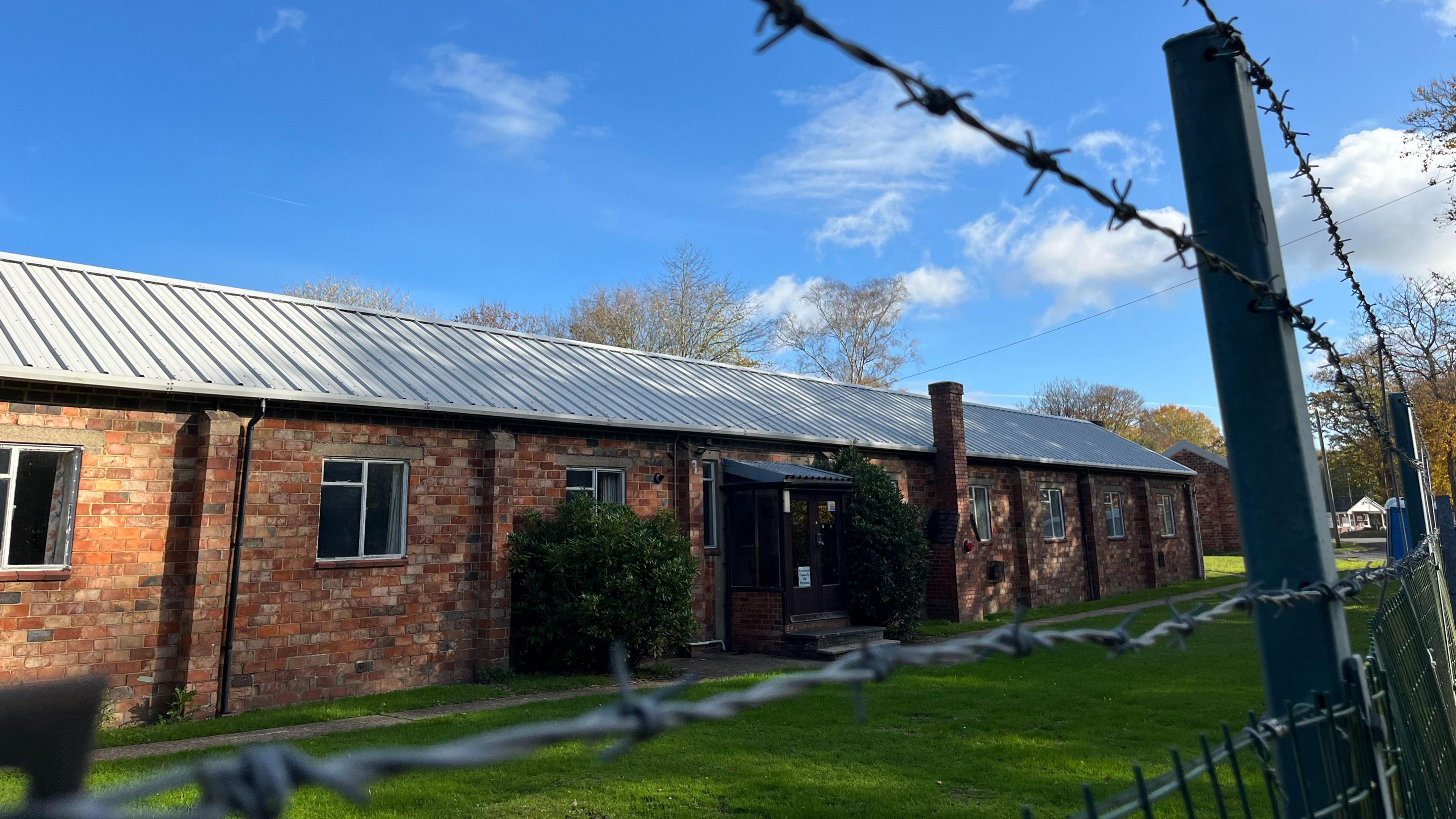
- Published28 October
